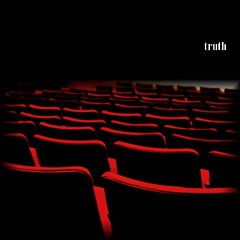ICT, information warfare, and the RFMF
The Royal Fiji Military Force (RFMF) recently posted a document entitled Commander's Intent 2008 on the their website. This statement of intent forms sort of a strategic plan for the RFMF for 2008 and beyond. It is broken up into three main sections:
- One section dealing with "Good Governance in the RFMF", including issues such as policy and legal compliance, formal planning, and budgetary restraint;
- One section that is a kind of environmental scan of the current internal and external situation in Fiji, including social and economic pressures, race relations, regional security, and a survey of the RFMF's "competition" within Fiji, "there had been a move to replace the RFMF with a reinvigorated and robust police force," and in the region including Commonwealth forces recruiting soldiers away from the RFMF; and
- A large section outlining the Commander's strategic ideas for the coming year.
ICT is referred to explicitly three additional times in the list of actions that the RFMF is considering in 2008.
- "Improve logistic support system,"
- "Develop a modern reliable and secure communications system," and
- "Develop a computerization and IT system for the RFMF."
LSS
While I do know a thing or two about electronic procurement, I am the first to admit that I know nothing about logistics support systems (LSS); and I am not familiar with what the RFMF currently has deployed. Certainly they will need to equip their logistics personnel with computers, wireless equipment, and assorted electronic inventory management apparatus - not to mention training - in order to take full advantage of a modern LSS.
Secure Communications
My informal survey of civilians who have had email contact with RFMF officers revealed two facts. First, RFMF officers use free email accounts from US vendors (i.e. Hotmail, Yahoo, etc.), at least to communicate with civvies. Using these American services makes spying on RFMF communication quite simple for US intelligence services, not to mention the risk due to the notorious insecurity of these services. Still, these are not a problems as long as these free accounts are limited to use for unclassified communications only. There is a mail exchanger (MX) registered for RFMF email addresses pointing to a server operated by Connect. Could this be the military's current/future secure mail server?
Second, my survey revealed that RFMF officers do not have Internet access in RFMF facilities and that officers must leave their bases in order to access the net. However, this cannot be entirely true. For one thing, there is a webmaster's Unwired email address posted at the bottom of the RFMF home page. This indicates that there is at least one wireless modem in RFMF facilities around the country. For another, according to an issue of the RFMF newsletter, there is an Internet Cafe located at QEB.
Our soldiers are so fortunate to be given this opportunity especially the Other Ranks and they will no longer go to town because we now have our own, and I would urge them to make good use of it," said the Commander Land Forces.The newsletter states that soldiers can purchase Internet access cards in $5, $10, and $15 denominations.
[Internet cafe to boost troops' interoperability, Mataivalu News, Feb. 2007, p13]
Of course, there is a lot more to digital military communications than email, but one must walk before one can run.
IT
In terms of establishing a state of the art military ICT infrastructure, the RFMF clearly has some challenges to overcome and room to grow. It will be difficult to establish such an infrastructure when the organization seems much more focused on the purely physical side of soldering. While the Commander's intent does mention the "changing nature of warfare", a phrase that evokes the increasing importance of information warfare and asymmetric conflict, the bulk of the 50 potential action items listed in this document involve enhancing the RFMF's physical operational capabilities. Of course, military forces often conceal their information warfare capabilities in terms of signals intelligence, cryptology, and system and network attack and defense - could there be more beneath the surface?
Absent?
In terms of ICT, what is missing from the Commanders statement of intent? There is no mention of plans to develop the RFMF's capacity to wage offensive or defensive information warfare. There is no mention of how the RFMF plans to compensate for the high-tech support and training that they used to receive from the Australian and New Zealand forces. There is no mention of plans to use private contractors to shore up RFMF's high-tech expertise, such as the Indian hackers rumored to have been employed last year or the consultations with FINTEL experts over anti-government bloggers. There is no mention of investing in media and public affairs training for officers.
As I have written about before, Fiji's current crisis is not a traditional military conflict, but rather a battle for the supremacy of ideas - the new ideas of the interim regime vs. the old ideas of the Qarase government. Fiji's current crisis is a 4th generation warfare (4GWF) conflict, where the focus is not on physically outmaneuvering one's opponent, but rather on winning the battle for public opinion. To quote Kim Taipale,
4GWF is political war -- superior political will, when properly employed, can defeat greater economic and military power... In 4GWF conflicts, nonmilitary instruments of power (information) trump military solutions (warfare, technology, and firepower). Information constrains the exercise of kinetic power but kinetic power cannot constrain information power.The possibility that political will could overcome the RFMF's monopoly on military power in Fiji should be a concern. Yet most of the activities under consideration, other than winning "the hearts and minds of the local population through professionalism," are purely 3GWF considerations - that is focused on informed, flexible, and rapid physical deployment of military force.
[Seeking Symmetry in Fourth Generation Warfare: Information Operations in the War of Ideas. March 2006]
To be successful with its cleanup campaign, the RFMF needs to win a conflict where the battlespace is bounded by communications technologies (including Fiji's ineffable but very effective coconut wireless) and the content of the stories that these technologies communicate. To be successful, it is in this battlespace, the informationspace, that the RFMF needs to increase its operational capacity. [Note: This morning's Fiji Times reports that the interim government is reviving the National Security Council and the Fiji Intelligence Services. Does this signal a change in focus or are these purely civilian initiatives?]
By way of conclusion I offer two quotations - one from a Russian Major-General and one from the most wanted man in the world - both of whom understand 4GWF better than anyone in the Pacific.
We are approaching a stage of development when no one is a soldier anymore but everyone is a participant in combat action. The task now is not to inflict losses in men and material but to thwart an enemy's plans, demoralize it, undermine its worldview, and destroy its intrinsic values."
[Maj. Gen. G.A. Berezkin, Deputy Head of the Russian Federation Defense Ministry Center of Military-Technical Information Studies, in Lessons from the war in Iraq, Military Thought (May 1, 2003). Quoted in Taipale.]
It is obvious that the media war in this century is one of the strongest methods; in fact, its ratio may reach 90% of the total preparation for the battles.
[Osama bin Laden, 2002. Quoted in Taipale.
Photos by: soldiersmediacenter



 UNESCO has formally announced the installation of the
UNESCO has formally announced the installation of the 